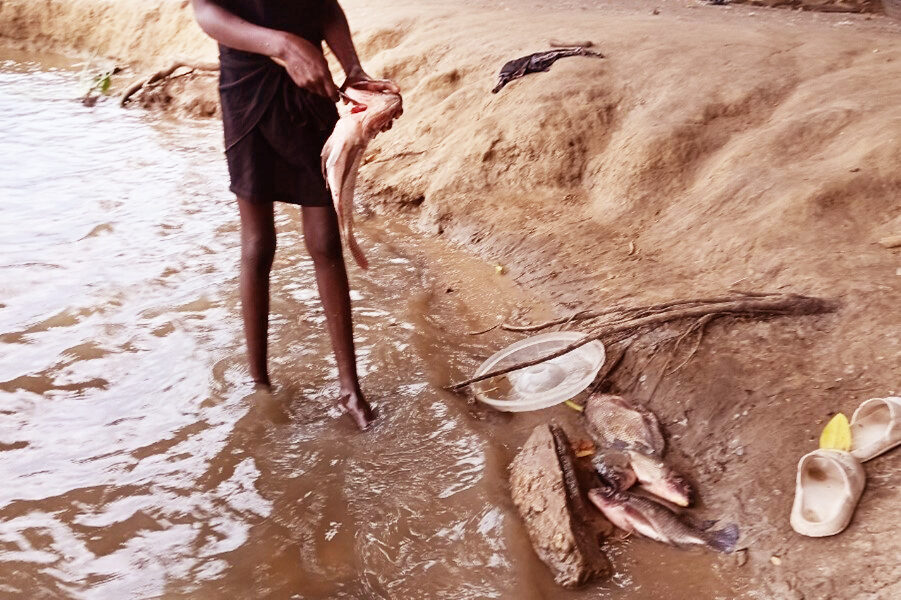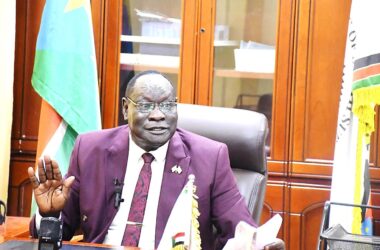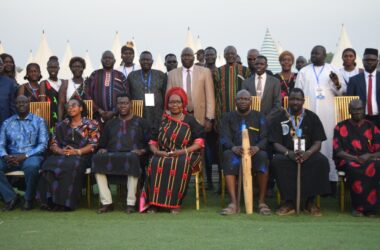By Kei Emmanuel Duku
A landmark report by Save the Children South Sudan reveals a dire child labor crisis, finding that over 70% of children surveyed across eight counties in seven states in South Sudan including Akobo, Kapoeta South, Magwi, Wau, Yambio, Juba, Bentiu (Rubkona), and Renk are involved in hazardous work.
The National Child Labour Study, which surveyed over 418 households, found an even more alarming figure were 64%, or nearly two in three children, were engaged in the worst forms of child labor.
These extreme forms include forced labor, sexual exploitation, and involvement in illicit activities such as stealing, drug abuse, and armed conflict.
Overall, nearly two-thirds of South Sudanese children aged 5 to 17 years surveyed were in the worst form of child labor, with rates soaring as high as 90% in the worst-hit regions.
Children reported being involved in a wide variety of activities, from traditional tasks like cattle herding and farming to dangerous jobs such as gold mining, brickmaking/laying, and street vending.
They are also involved in fighting alongside armed groups. The findings show that boys are more frequently exposed to hazardous and military-related labor, while girls face heightened risks of domestic work, child marriage, and exploitation.
Specifically, 10% of children surveyed reported experiences linked to conflict-related engagement with armed groups, particularly in Akobo, Bentiu, and Kapoeta South counties.
The survey noted regional extremes, such as Kapoeta South and Yambio, where nearly 90% of children surveyed were engaged in child labor. In Kapoeta South, gold mining, pastoralism, and farming were keeping children out of school; in Yambio, local conflict and child marriages were major contributing factors.
The study indicates that children typically move from ‘light’ tasks to more coercive and dangerous labor, progressively reaching the worst forms that leave them enslaved, separated from families, and exposed to serious hazards or illnesses.
Despite children often staying with caregivers, the survey revealed that parental knowledge of child labor laws is not enough to guarantee a child’s protection. In a troubling finding, over 70% of children involved in hazardous work came from households where caregivers were aware of child labor laws.
Furthermore, a significant service gap was identified with only 33% of children were aware of any protection or support service available in their area.
“Across the country, children are denied their basic right to education and the chance to build a better future,” said Anthony, 16, a Child Representative. “Let us stand together and say no to child labour… Every child in South Sudan deserves the opportunity to dream and to become who they are meant to be.”
During the survey’s launch in Juba, government and aid officials acknowledged the severity of the crisis. Deng Tong, Undersecretary of the Ministry of Labour, commended the study for providing a “critical foundation for action,” which will help establish a national child labor database for informed decision-making. “Together, we can make child labour a thing of the past and give every child in South Sudan the chance to dream and to thrive,” he stated.
Dak Duop Bichiok, Minister of Public Service, who represented the Ministry of Labour, noted that the survey highlights “critical policy gaps” that must be addressed to ensure a safe space for children.
Save the Children’s South Sudan Country Director, Chris Nyamandi, stressed that the crisis goes beyond poverty. The Country Director emphasized that education remains the strongest protective factor, as children who attend school are far less likely to be engaged in exploitative labor. “Education remains the only safe haven for our children,” Nyamandi said, underscoring the vital link between poverty reduction, strengthened education, and child protection.
The study was funded by the European Union under Save the Children’s Empowering Futures initiative. Barbara Egger, European Union Representative, concluded that policy gaps must be closed, and education and social protection strengthened to ensure that every child can “realize the future they rightfully deserve.”



